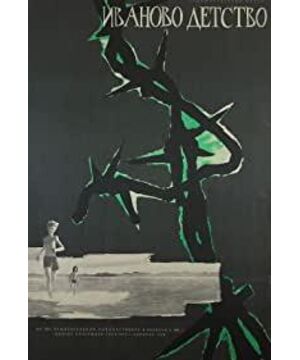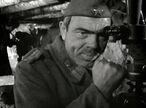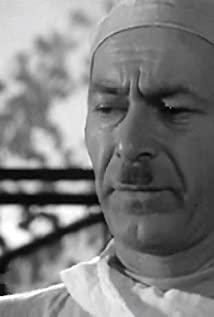Ivan was stubborn. He swam back from the opposite side, and was rescued by the captain, who was also a young man, from leg cramps. He didn't appreciate it and just insisted on calling No. 51. Back at No. 51, Ivan, who could have studied quietly in the school, gave up this opportunity and strongly demanded to return to the battlefield. From Ivan's perspective, we stared at the words of revenge on the wall of the room over and over again. The dramatic thing is that between the last mission, the colonel who had promised to adopt Ivan didn't die either, implying to some extent that this would be the end for Ivan, whether he came back or not, this is all a tragedy. The departure of the mother in the dream and the departure of the colonel in reality are re-enactments to some extent, and we cannot imagine how children in the context of war can protect themselves.
The only romantic tone in the film is He Lin's kiss with the medical assistant, crossing the gap and needing to hold on to love. The birch forest is the most classic scene in Russia, and the presentation in the film is full of imagination. The dark tone is a prelude to sadness and bright. Under the haze of war, they still have love, music, and birch forest. Probably this is hope and persistence. What kind of movie is a good movie? The screenwriter is very important, and the director is especially important. When you feel that any plot of this film is indispensable, that is the power of the screenwriter; when you think that the photography of the whole film is remarkable, it is the power of photography, but in general The profound feeling of the whole film comes from the director's control.
When you see the food Ivan put down as he leaves the old grandpa waiting for the dilapidated family, you know this country is going to be undefeated.
View more about Ivan's Childhood reviews









